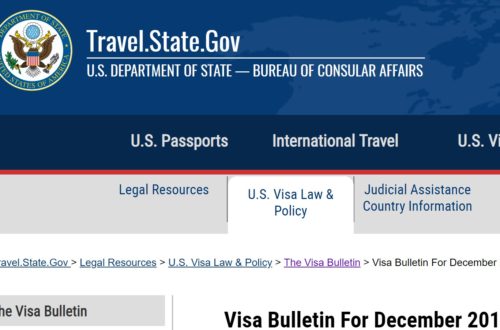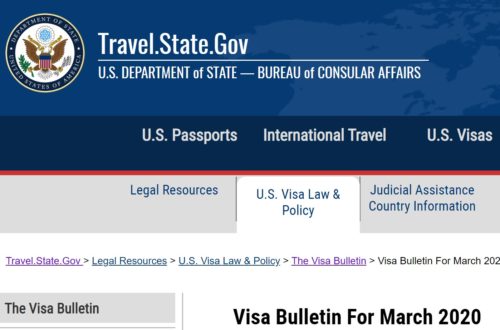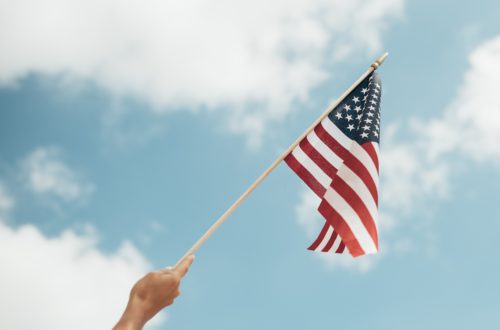
What You Need to Know About the New Public Charge Rule Effective 10/14/2019
**UPDATE: On October 11, 2019, federal judges in New York and California ordered a nationwide block, which prevented the rule from going into effect. On January 27, 2020, the U.S. Supreme Court decided that this rule can go into effect. USCIS announced that they will begin implementing this rule starting February 24, 2020.
A major change is happening starting on October 14, 2019, for those applying or adjustment of status (green card), change of status, and extension of status. Applicants will have to prove that they are self-sufficient and will not become a public charge. In other words, people who are applying for a green card, change of status, or extension of status must prove that they have the financial resources, such as cash, assets, and/or family members they can rely on for their financial needs, and they will not rely on the U.S. government for financial assistance such as, getting on food stamps and/or Medicaid to name a few. Under this new rule, a “public charge is an alien who receives one or more designated public benefits for more than 12 months, in the aggregate, within any 36-month period (such that, for instance, receipt of two benefits in one month counts as two months).”
To give you just a little bit of history about this “self-sufficiency concept, since 1882, the law has been that immigrants must prove that they can support themselves or rely on family members to financially support them so that they will not become a public charge. Then, came the I-864 form, which is a form that must be filled out by everyone who is sponsoring a family member to become a green card holder. This form is a contract between the petitioning family member with the U.S. government promising that they will be financially supporting the immigrating family member and that family member will not go on public benefits. The petitioner must show he/she makes at least 125% of the federal poverty guidelines per year based on his/her household size. If the family member does get on public benefits, the petitioner would have to reimburse the government. In situations where the petitioner doesn’t make enough money, he/she can get a joint financial sponsor. For decades, this form has been enough to overcome the public charge issue, but this is no longer going to be the case. Not only do petitioners still have to show that he/she makes over the 125% of the federal poverty guidelines, applicants themselves will now have to prove to the government that they will not become a public charge.
So, what does this mean? A new fifteen-page form, in addition to the required forms, is going to be mandatory for applicants to fill out to show they will not become a public charge. If a person has used public benefits in the past, and even if they never have but the immigration officer determines they will, that could result in a public charge finding making the person ineligible for the green card. Officers will begin using a “Totality of the Circumstances” test. The factors that will be looked at are:
- Age – preference will be given those between the ages of 18 – 65/67 and their ability to be employed.
- Health – whether the person has a health condition that will impact their ability to work and/or result in long term institutionalization.
- Family Status
- Assets, resources, and financial status – whether the applicant’s income is at or above the 125% federal poverty guidelines, has enough resources to cover any potential medical costs, has any debts, and if the applicant has received any public benefits.
- Education and skills – whether the applicants have sufficient education and skills to have a full-time job. English ability will also be considered.
- Anticipated period of admission – how long the person will be in the U.S.
- Affidavit of support – the I-864 form will still be required
None of these factors alone will make a person a public charge, but they will all be looked at.
Here is a list of some of the negative and positive factors:
Negative Factors:
- F-1 visa holder who has valid work authorization but isn’t working, hasn’t worked, or no foreseeable future of working
- Currently receiving public benefits or currently certified or approved to get a public benefit
- Has received one or more public benefits within the last 36 months immediately proceeding the person’s application
- Medical condition that will require extensive treatment or institutionalization that will interfere with the applicant’s ability to provide for himself or herself, work or attend school.
- The applicant is uninsured and isn’t likely to get private health insurance to pay for foreseeable medical costs related to the medical condition
- Has been found to be a public charge in the past
- Having a joint financial sponsor could be problematic
Postive Factors:
- The applicant has household assets, resources, and support of at least 250% of the federal poverty guidelines
- The applicant is authorized to work and is currently employed at or above 250% of the federal poverty guidelines for her household size
Here is a list of what IS considered a public benefit for purposes of a person being found to be a public charge:
- Social security income
- TANF
- General cash assistance
- Food stamps, also known as SNAP
- Section 8 housing choice voucher
- Rental assistance
- Medicaid
- Institutionalization for long term care
- Medicare part D
- Subsidized housing
Here is a list of what IS NOT considered a public benefit for purposes of being found to be a public charge:
- Affordable Care Act
- Earned Income Tax Credit
- CHIP
- WIC
- Disaster relief
- National school lunch programs,
- Foster care and adoption
- Student and mortgage loans
- Energy assistance
- Food pantries
- Homeless shelters
- Head Start
Part of the requirements of this new form could include the applicants having to send in 12 months of bank statements, proof of private health insurance, prior applications for public benefits, proof of non-cash assets, and a credit report. There may be instances where if a public charge finding is made, the immigration officer may allow for a person to pay a $10,000 bond to overcome the finding.
Certain individuals will not be subject to this new rule. They include those applying for humanitarian-based immigration programs such as refugees, asylees, and certain trafficking victims (T nonimmigrants), victims of qualifying criminal activity (U nonimmigrants), victims of domestic violence (VAWA self-petitioners), Special Immigrant Juveniles (SIJs), or certain children. Also, those who have received the designated public benefits who at the time he/she was receiving the benefit, or at the time of the application, was a member of the U.S. armed forces, serving in active duty or in any of the Ready Reserve components. Also, receipt of public benefits by spouses of children of these applicants will be exempt.
Overall, this rule gives officers a lot of discretion to determine if a person is or will likely become a public charge. Even if a person has never received a public benefit before, this finding could still be made. This is a major change and will affect just about anyone applying for a green card.
You can find the press release from USCIS here.




